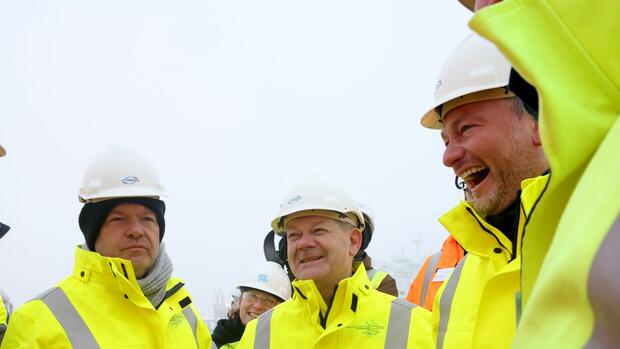(Photo: Bloomberg)
Anyone in Germany who is listening closely at the moment cannot deny the dissonance. From the family circle to the social media to the very big political stage, a directional dispute is being waged on the question of which way Germany will become fit for the future. After all, prosperity for future generations no longer seems to be taken for granted.
This also has to do with the concept of prosperity itself – it has become complex. It is no longer just about monetary wealth, but also about the unconditional preservation of our ecological basis of life. No economic growth in the world is worth anything without it.
Greens and Liberals in the federal government in particular are currently arguing bitterly about how the balancing act between progress and preservation can be achieved – representing many citizens. The main questions are whether solar systems will be set up on the edge of German autobahns, when oil and gas heating systems will no longer be allowed to be installed, or whether combustion engines should still be on our roads in the future.
But behind this lies the very big question of the right way to an internationally competitive economy that is a pioneer in new technologies and at the same time works in a climate-neutral manner. It is paradoxical that the FDP in particular apparently wants to stick to the traditional.
A bitter truth is that we must expect more of the economy. In a time of constant change, we cannot afford to hold on to yesterday’s methods for too long. At least not if they don’t contribute to our overall goal. Fossil energies, for example, are no longer sustainable.
Progress by saying goodbye to old technology
But that need not lead to despondency. An example that gives courage to break away from old techniques can be found in history. German industry also experienced an upswing after the Second World War because the occupying forces took the old machines from the German factories with them.
The dismantling did not have the desired effect for the Allies: New, more modern equipment was developed in Germany, and the victorious powers were left with the outdated legacy. This is one of the reasons why German industry was a technological pioneer for decades.
>> Read here: Why switching to the heat pump works better in other countries
If the suppliers of modern industrial equipment in post-war Germany had had to assert themselves against the stock in the factories for a long time, they would probably have been far less successful.
Even today there are many companies that work at full speed in the morning and want to advance the economy and society with their innovations. However, there is often a lack of capital to implement their ideas. Many of their products are also too expensive to compete with the tried and tested on the market. Because the climate factor is still not adequately included in the price.
Politicians must intervene here: the social costs that climate-damaging products cause for everyone must be priced in consistently. Where there is no other way, if necessary, clear guidelines must also ensure that outdated technologies disappear completely.
This is not a planned economy. The state would only set the guidelines for the path to a technologically successful, climate-neutral economy. What happens after that is taken care of by the market economy itself.
True, bans do not create innovation. But bold political decisions create a business case for those who are already working on the future. However, those who favor individual sectors or even companies out of false consideration alienate all those who bravely work with their products in the morning. Because elsewhere, especially in the USA, they are already greeted with a kiss on the hand.
More: German start-ups from future industries could migrate to the USA.
